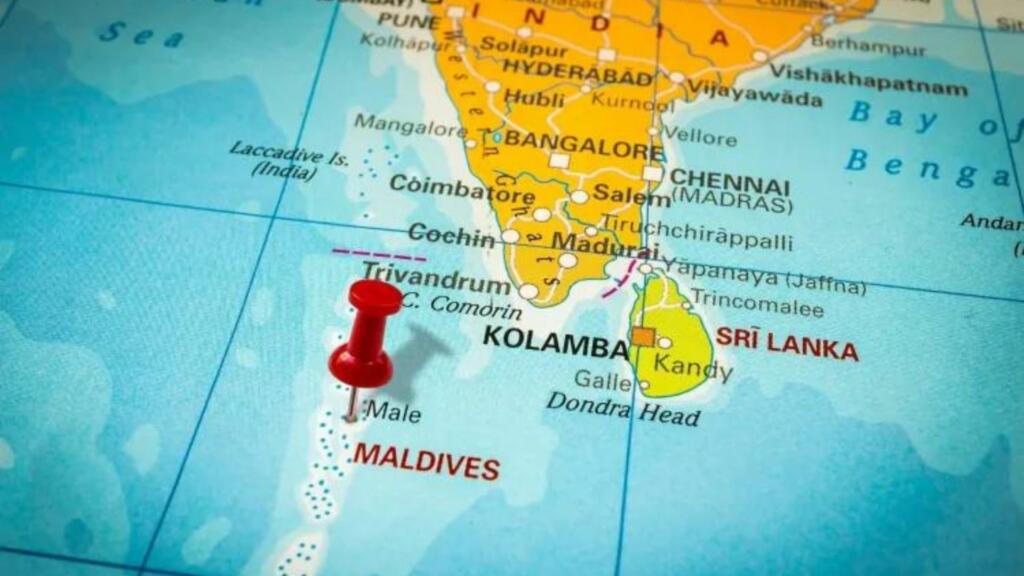India’s recent imposition of port restrictions on essential commodity exports to the Maldives marks a significant development amidst escalating tensions between the two nations. Against the backdrop of a longstanding bilateral relationship, recent disputes, including social media conflicts and military presence issues, have strained diplomatic ties. The decision reflects India’s strategic response to the evolving dynamics in its relationship with the Maldives, raising questions about the future trajectory of bilateral trade and cooperation. As both countries navigate through this period of uncertainty, the implications of these restrictions extend beyond economic considerations, impacting broader diplomatic relations.
Port Restrictions and Bilateral Trade Agreement
In a significant development amidst escalating diplomatic tensions, India has recently imposed port restrictions on the export of essential commodities to the Maldives. This move, enacted by the Directorate General of Foreign Trade (DGFT) under the Foreign Trade (Development & Regulation) Act, 1992, signifies a deliberate shift in India’s trade policy towards its neighboring island nation.
Under these newly imposed restrictions, essential commodities categorized as prohibited or restricted for export to the Maldives will now be channeled exclusively through four designated customs stations. These customs stations, strategically selected to streamline and monitor the export process, include Mundra Sea Port in Gujarat, Tuticorin Sea Port in Tamil Nadu, Nhava Sheva Sea Port (JNPT) in Maharashtra, and ICD Tughlakabad in New Delhi.
The decision to enforce these stringent port restrictions must be viewed within the broader diplomatic context between India and the Maldives. Bilateral relations between the two countries have experienced strains in recent times, primarily due to a series of contentious issues ranging from social media disputes to military presence on Maldivian soil.
Bilateral Trade Agreement: Foundation of Economic Cooperation
At the heart of India-Maldives economic cooperation lies the bilateral trade agreement signed in 1981. This landmark agreement paved the way for the export of essential commodities from India to the Maldives, establishing a robust framework for trade relations between the two nations.
The 1981 trade agreement holds immense significance in guiding the trajectory of economic engagement between India and the Maldives. It not only facilitated the flow of goods across borders but also served as a cornerstone for fostering mutual trust and cooperation in the realm of trade and commerce.
However, as diplomatic tensions continue to simmer, the enforcement of port restrictions signals a potential reevaluation of trade dynamics between India and the Maldives. While the bilateral trade agreement remains intact, recent developments underscore the need for a recalibration of economic ties in tandem with evolving geopolitical realities.
Also Read: Maldives’ Economic Mirage and The Toll of the Missing Indian Tourists.
Background of Diplomatic Tensions
Recent diplomatic tensions between India and the Maldives have been fueled by a series of contentious incidents, beginning with a social media dispute that ignited public outcry and subsequent actions.
The tension was ignited when a social media post, originating from the Maldives, triggered an uproar among Indian tourists. This online altercation not only strained diplomatic relations but also led to a significant shift in tourist preferences, with Indian travelers opting to boycott the Maldives in favor of domestic destinations like Lakshadweep. The economic impact of this shift was felt by the Maldives, adding to the strain in bilateral relations.
President Muizzu’s administration exacerbated the situation by making demands regarding the presence of Indian military troops on Maldivian soil. Muizzu’s call for the withdrawal of Indian military personnel, including the setting of a deadline for their complete removal, further escalated tensions between the two nations. This move challenged the longstanding military cooperation between India and the Maldives, adding a security dimension to the diplomatic standoff.
Attempted Diplomatic Resolution
In response to the escalating tensions, both India and the Maldives have engaged in diplomatic efforts to mend their strained ties and find a resolution to the ongoing disputes.
Efforts have been made at various levels to de-escalate the situation and restore normalcy in bilateral relations. Diplomatic dialogues and negotiations have been initiated to address the core issues fueling the tensions between the two countries. High-level meetings between officials from India and the Maldives have been convened to facilitate constructive discussions and explore avenues for reconciliation.
Despite the challenges posed by the recent diplomatic rift, both India and the Maldives remain committed to finding diplomatic solutions to their differences. The engagement of diplomatic channels underscores the importance of dialogue and cooperation in overcoming bilateral challenges and strengthening ties between neighboring nations.
Future Implication
The port restrictions on bilateral trade between India and the Maldives may strain economic ties and further exacerbate diplomatic tensions. Continued restrictions could lead to disruptions in supply chains and hinder the flow of essential commodities, impacting both nations’ economies. The trajectory of the relationship hinges on diplomatic efforts to resolve underlying disputes and rebuild trust. Failure to address grievances could result in prolonged friction and hinder prospects for cooperation in the future.
In conclusion, India’s imposition of port restrictions underscores the deepening diplomatic rift with the Maldives, stemming from social media disputes and military presence issues. These restrictions, coupled with strained relations, pose challenges to bilateral trade and cooperation. As both nations navigate through this period of uncertainty, diplomatic dialogue and constructive engagement remain imperative for restoring trust and fostering mutual understanding. The significance of addressing underlying grievances cannot be overstated, as it holds the key to securing a stable and prosperous future for India-Maldives relations.
Also Read: India’s Enduring Assistance to Maldives: A Sign of True Leadership
